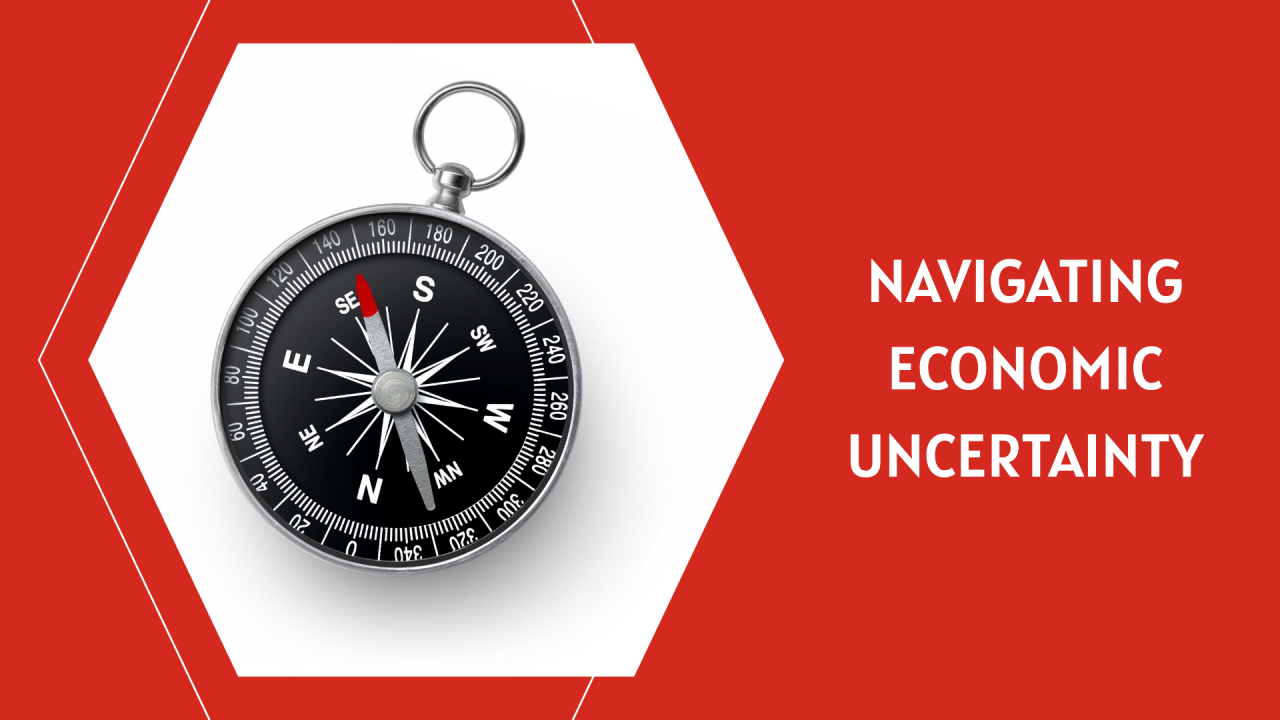
Navigating Economic Uncertainty: A Roadmap for Your Business
In these unpredictable times, small and medium-sized enterprises (SMEs) find themselves at a crossroads where agility and strategic planning are more than necessary—they're crucial to survival and growth.
In these unpredictable times, small and medium-sized enterprises (SMEs) find themselves at a crossroads where agility and strategic planning are more than necessary—they're crucial to survival and growth. Economic uncertainty presents numerous challenges, but it also offers unique opportunities for businesses ready to think ahead and act swiftly.
Here's a glimpse at the current global economic landscape:
These factors paint a picture of a global economy facing headwinds, demanding a high degree of adaptability and resilience from businesses of all sizes, especially SMEs.
Economic uncertainty presents numerous challenges, but it also offers unique opportunities for businesses ready to think ahead and act swiftly.
Identifying and Managing Risks
Firstly, recognizing internal vulnerabilities is crucial. This involves a thorough analysis of potential risks ranging from cash flow issues to workforce instability. Once identified, these risks need to be prioritized based on their potential impact, allowing SMEs to address the most critical threats first.
领英推荐
Building a Resilient Culture
Cultivating a resilient organizational culture is vital. This includes fostering adaptable leadership and investing in talent, which not only prepares a business to face current challenges but also positions it for future growth. Amazon exemplifies resilience; during the COVID-19 pandemic, the company swiftly adapted by increasing its workforce and investing heavily in technology, which significantly boosted its operational capacity and profitability.
Technological and Digital Advancements
Embracing digital transformation is another key strategy. The COVID-19 pandemic accelerated digital adoption among SMEs, helping many to sustain operations amid economic shocks. However, small firms often struggle with accessing the necessary skills and networks to fully utilize digital technologies. It's imperative that SMEs bridge these digital gaps to enhance their efficiency and competitiveness.
Financial Strategies and Customer
Retention Financial prudence is essential during economic downturns. Effective cash flow management can safeguard SMEs when revenue streams are uncertain. Additionally, focusing on existing customers rather than expending resources to acquire new ones can be more cost-effective and help maintain stable revenue during downturns.
Conclusion
In conclusion, the resilience of SMEs is crucial not just for the businesses themselves, but for the broader economy. By implementing robust risk management strategies, fostering a resilient culture, leveraging technology, and focusing on financial health and customer loyalty, SMEs can navigate the uncertainties of today's economic landscape.
About QwidPro: QwidPro recognizes the unique challenges SMEs face, particularly in times of economic uncertainty. By connecting businesses with flexible talent solutions, QwidPro helps SMEs adapt and thrive without the burden of excessive overhead. Discover how QwidPro can support your business's specific needs by visiting us at www.qwidpro.com.